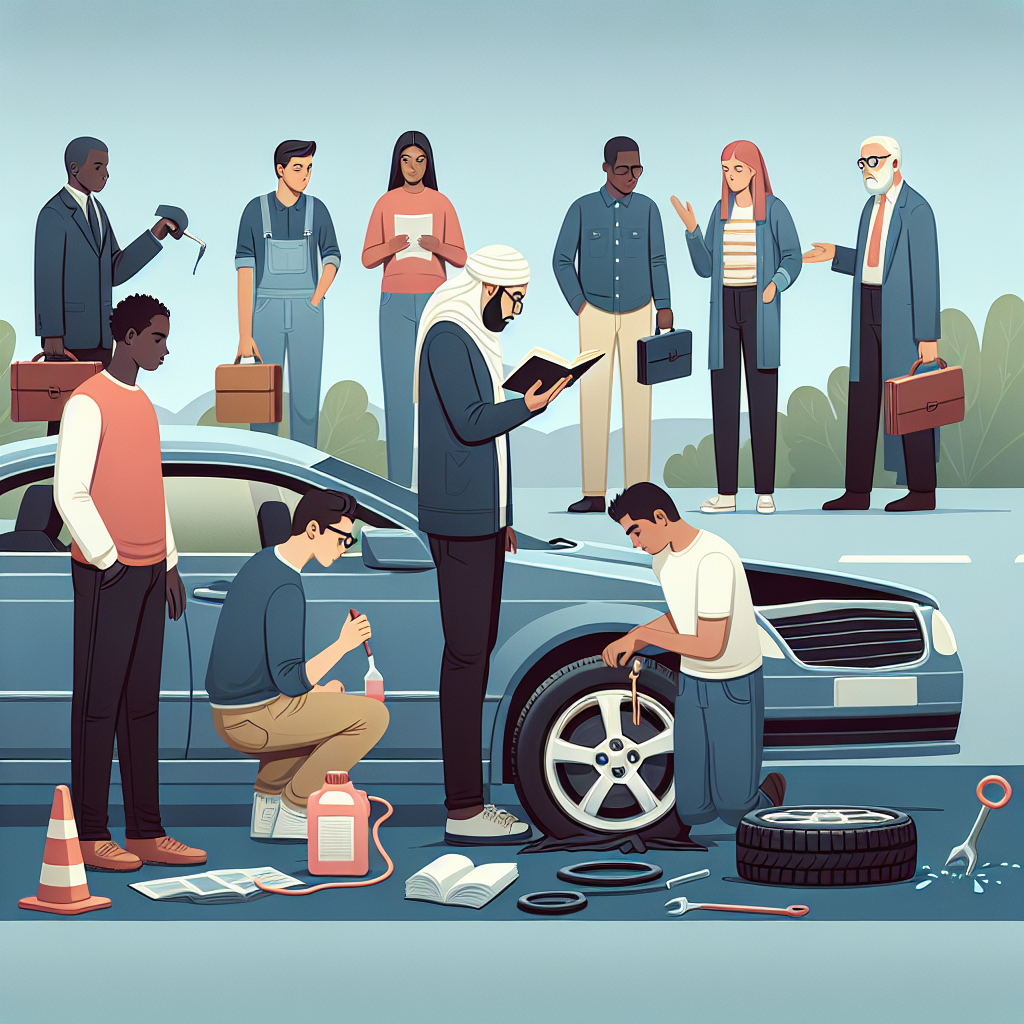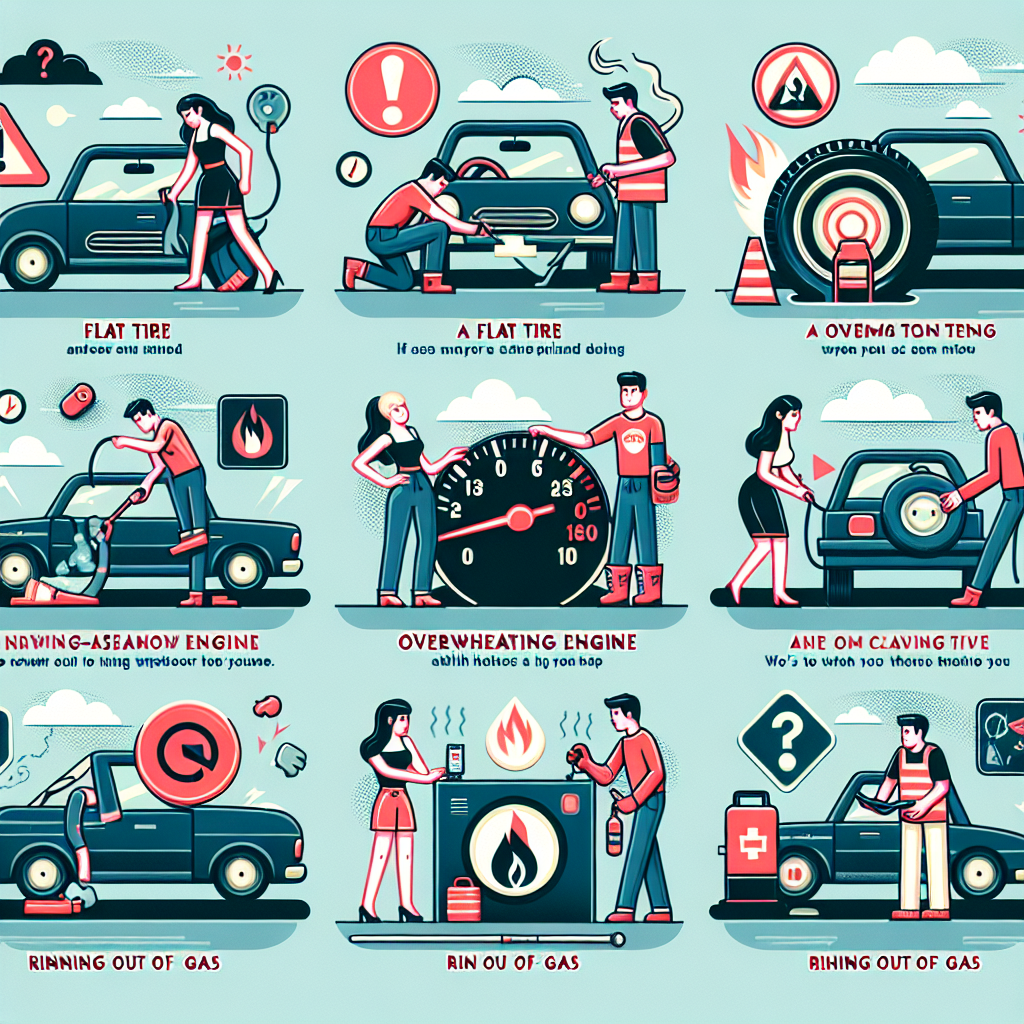-
Table of Contents
Dealing with Emergencies on the Road: Common Emergencies and How to Handle Them

Driving on the road can be an exhilarating experience, but it also comes with its fair share of risks. No matter how cautious and prepared you are, emergencies can still occur. It is crucial to know how to handle these situations to ensure your safety and the safety of others on the road. In this article, we will explore some common emergencies that drivers may encounter and provide valuable insights on how to deal with them effectively.
1. Tire Blowouts
A tire blowout is a sudden loss of air pressure in one or more tires, which can cause the driver to lose control of the vehicle. This emergency can be particularly dangerous at high speeds. Here’s what you should do if you experience a tire blowout:
- Stay calm and maintain a firm grip on the steering wheel.
- Do not slam on the brakes. Instead, gradually release the accelerator and let the vehicle slow down naturally.
- Once the vehicle has slowed down, carefully steer it to the side of the road or onto the shoulder.
- Turn on your hazard lights to alert other drivers.
- Call for roadside assistance or change the tire if you have the necessary tools and knowledge.
2. Engine Overheating
An overheated engine can be caused by various factors, such as a malfunctioning cooling system or low coolant levels. If you notice your engine temperature gauge rising, follow these steps:
- Turn off the air conditioning and open the windows to reduce the load on the engine.
- If it is safe to do so, pull over to a safe location and turn off the engine.
- Wait for the engine to cool down before attempting to open the hood.
- Once the engine has cooled, check the coolant levels and add more if necessary.
- If the problem persists, call for roadside assistance or a mechanic.
3. Brake Failure
Experiencing brake failure while driving can be a terrifying situation. However, knowing how to respond can make a significant difference. Here’s what you should do if your brakes fail:
- Stay calm and try not to panic. Panicking can lead to poor decision-making.
- Shift to a lower gear to slow down the vehicle.
- Engage the emergency or parking brake gradually to bring the vehicle to a stop.
- Use your horn or flash your lights to alert other drivers.
- Once the vehicle has come to a stop, turn on your hazard lights and call for assistance.
4. Accidents
Despite our best efforts, accidents can still happen on the road. It is essential to know how to handle the situation calmly and responsibly. Here are the steps to follow if you are involved in an accident:
- Check yourself and your passengers for injuries. If anyone is injured, call for medical assistance immediately.
- Move your vehicle to a safe location, if possible, to avoid obstructing traffic.
- Exchange contact and insurance information with the other party involved in the accident.
- Ensure that police arrive on the scene to take each of your statements.
- Take photos of the accident scene and any damages to your vehicle.
- Notify your insurance company and provide them with all the necessary details.
- If you want to pursue legal representation, call us at 702-999-8888
5. Getting Lost
Getting lost in an unfamiliar area can be stressful, but it is essential to stay calm and take the necessary steps to find your way back. Here’s what you can do:
- Use a GPS navigation system or a smartphone app to help you find your way.
- If you don’t have access to navigation tools, look for road signs or landmarks that can guide you back to a familiar area.
- Find a safe place to pull over and ask for directions from locals or use a public map.
- Plan your route in advance and familiarize yourself with the area before embarking on a journey.
Summary
Emergencies on the road can happen to anyone, regardless of how experienced or cautious they are. By knowing how to handle common emergencies, you can minimize the risks and ensure your safety. Remember to stay calm, assess the situation, and take appropriate actions. Whether it’s a tire blowout, engine overheating, brake failure, accident, or getting lost, following the steps outlined in this article will help you navigate these emergencies with confidence. Stay prepared, stay safe!



